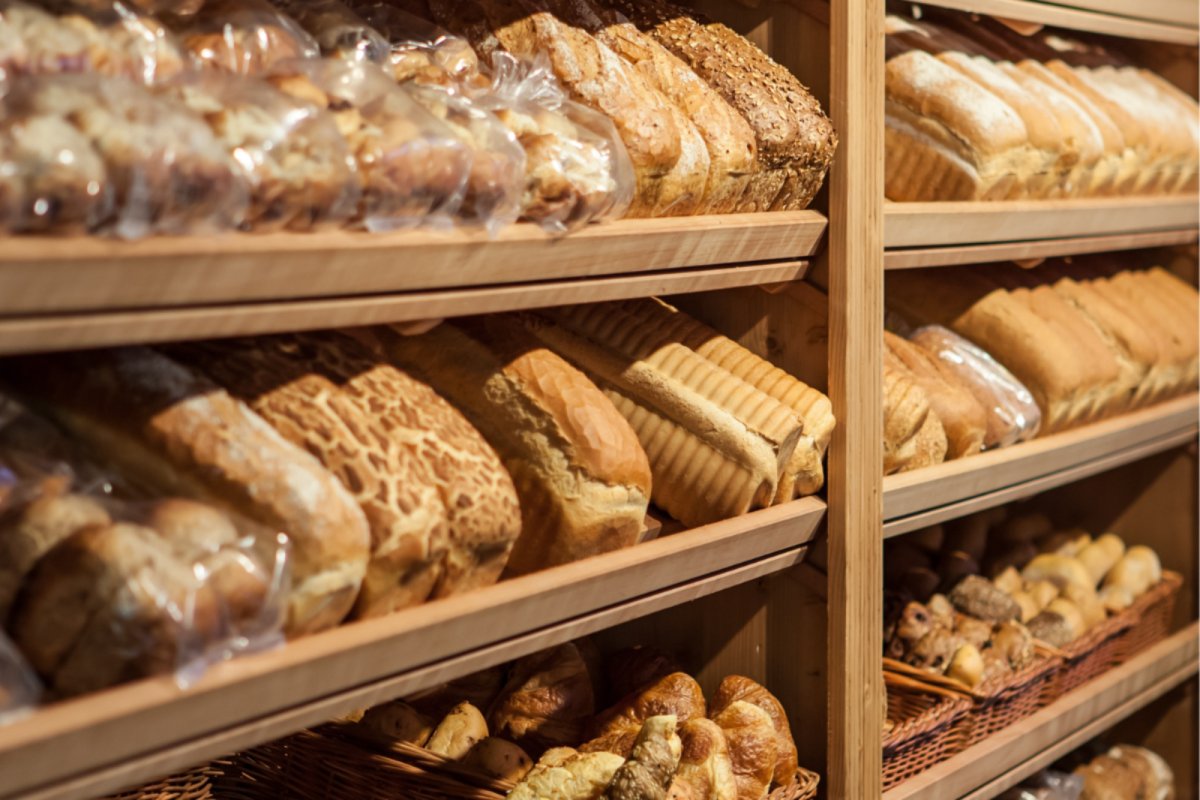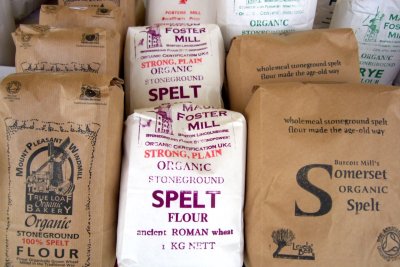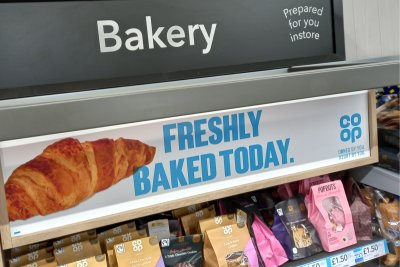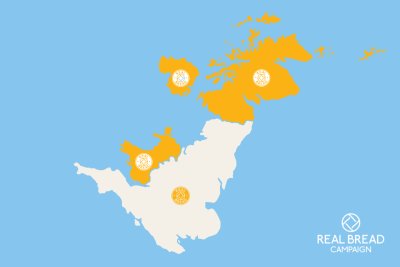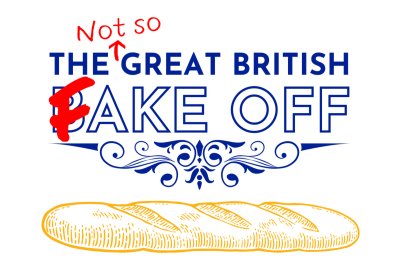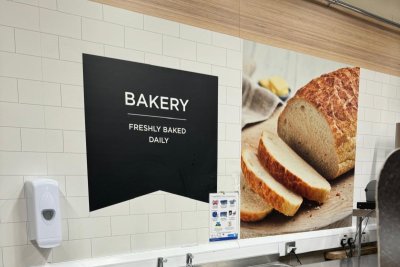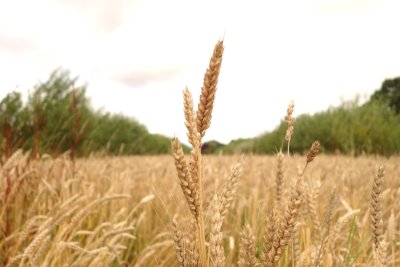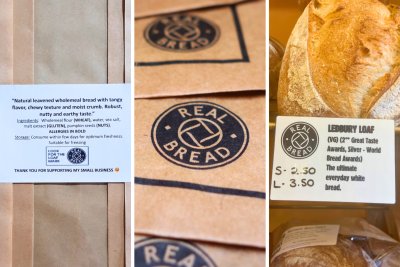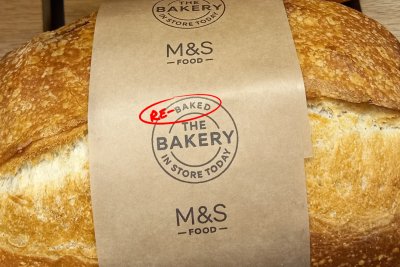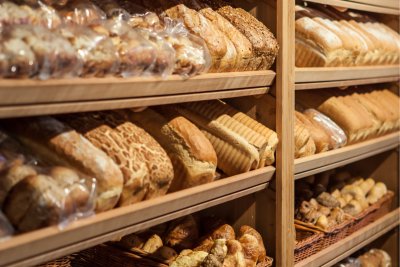 Are you getting what you think you're paying for?. Credit: Canva
Are you getting what you think you're paying for?. Credit: Canva
Ahead of Sourdough September, the Real Bread Campaign sent the following to Mark Spencer, Minister of State for Food, Farming and Fisheries:
Dear Mark,
While we thank you for the length and detail of your 24 July 2023 response to our letter of 17 May 2023, we are deeply disappointed by the content of it.
We believe it shows your department’s and government’s total lack of support for thousands of SME bakery businesses across the UK, their employees, and potentially millions of shoppers who want or even need to know that they are getting what they think they’re paying for.
Market failure
We cannot agree with your denial of market failure or assertion of regulatory robustness. We believe that your refusal to take action is denying consumer protection bodies the tools they need.
Hypothetically, a skilled artisan baker might craft a loaf from scratch from 100% wholemeal Red Lammas wheat, water and salt. They might then sell the loaf the same day, marketing it as freshly-baked wholegrain heritage wheat sourdough artisan bread, listing all of its (three) ingredients on a shelf label.
A long time previously, another loaf might have been manufactured on a highly-automated production line in another country from refined commodity wheat flour, water, a pinch of spelt, baker’s yeast, salt, some deactivated sourdough powder, soya flour, palm oil, vinegar, flavouring, ‘processing aids’ and any number of other additives; baked at a low temperature; before being frozen and shipped to the UK. At some point later, that product would be shipped to a supermarket or other retailer, then defrosted and re-baked in what we call a loaf-tanning salon by a member of retail staff.
Neither current regulations, ‘the market’ or anything else (perhaps other than honesty) would prevent the retailer marketing that industrial loaf product with exactly the same description used for the artisan’s loaf (but at a lower price on account of the quicker, cheaper and larger scale production) and with only the allergens listed on the shelf label. In what way is that right or fair to the artisan baker or the second retailer’s customers?
Unlike you, we have nothing against lower quality products - after all, they offer people wider choice - just as long as such products are marketed (and, ideally, priced) accordingly, rather than passed off as higher quality ones.
Say no to sourfaux
As you are well aware, we are not calling for every food term to be defined in law. We are calling for meaningful legal definitions of a limited number that are commonly used (but often abused) in the marketing of a staple food – bread.
Can we assume that you believe it is quite right that terms including whisky and pasteurised milk can only be used if a product is made by a particular process? If so, why will you not afford people similar protection from the misuse of the term sourdough?
We too are keen for bakers of all types to come together in a shared understanding and agreement of what genuine sourdough bread is and the process by which it is made. As the code proposed by a small group of organisations with little to no previous involvement in the crafting of genuine sourdough bread makes clear, however, there are some within ‘the industry’ not willing to do so.
The definition we propose does indeed incorporate and allow all types of bread made by the sourdough process. Nor would it do anything to deny any manufacturer the freedom to make products using any combination of additives, baker’s yeast and chemical raising agents, which they would still be able to name and market using words other than sourdough.
Thanks to many years of skill, effort and determination of custodians and aficionados of the craft, sourdough bread is happily making its way further and further into the mainstream. Sadly, the lack of a legal definition and regulation of the word means that an ever-increasing number of people across the UK are at risk of being misled by hi-jack marketing. As many people’s budgets get tighter, so grows the imperative for your government and department to reduce the opportunity for food fraud.
Absent and ‘clean’ labels
Regulations and ‘the market’ are also failing to ensure that people have immediate access to full ingredients listings for every product. This allows manufacturers and retailers to create an unnecessary obstacle by omission of facts vital to the ability to make better-informed food buying choices.
I’m glad you agree with us that listing ingredients (you give baker’s yeast as an example) is of great importance in helping enable people to make better-informed food buying choices. Why, then, will you not make mandatory the listing of all ingredients and additives used in every baked product, as the Real Bread Campaign has called for since 2009?
In the face of inaction and even resistance by government and industry, a small step towards our proposals was made in 2014 thanks to EU legislation, which was then adopted here. Previously hidden additives (aka ‘fortificants’) in most wheat flour sold in the UK now have to be declared on ingredients lists.
Tragically, people died before further progress was made towards our proposed higher labelling standards. It was only after campaigning by the family of Natasha Ednan-Laperouse, in the wake of her death from an allergic reaction to eating a sandwich without an ingredients list, that one has to appear on the label of food that has been pre-packed for direct sale.
The introduction of new PPDS food labelling rules in 2021, however, still leaves loopholes that deny shoppers immediate access to important information, for whatever reasons people need or want it. Yet again, why will you not introduce legislation that requires retailers to display at point-of-sale full ingredient lists (our calls have always gone beyond allergens) for food sold unwrapped; or require manufacturers to list any and all additives (including so-called processing aids) used?
What’s in a name?
The reasons that anyone might want or need to read an ingredients list, however, should not have to include checking that a product marketed as sourdough is indeed genuine sourdough bread. A baker should not need to use qualifiers to distinguish their genuine sourdough bread from the sourfaux of others. On both sides of the counter, the word sourdough alone should be sufficient.
You are correct that Defra staff members and previous ministers have suggested the creation of a Traditional Specialty Guaranteed (or other non-geographic protected name status) for genuine sourdough bread. Your records will also show that makers of genuine sourdough bread have rejected that suggestion on every occasion, primarily for a reason that you can appreciate – preventing red tape.
Unlike the simple, legal definition of sourdough that we call for, the certification process of such a system would entail a costly and unnecessary burden of proof on producers wanting to benefit from it. Also unlike a legal definition, a TSG would result in an uneven playing field, with small businesses being affected disproportionately by the time and financial costs involved.
Protected name status could not be secured for the word sourdough alone, so a qualified name (such as ‘genuine sourdough’ or ‘sourdough Real Bread’) would have to be used. This would leave other manufacturers free to continue using the word sourdough for fundamentally different products without scrutiny. This is likely to increase confusion, with many shoppers unaware that only the protected name was their guarantee of genuine sourdough bread.
Defra rejecting clarity?
Products that include white flour are being named and advertised using the word wholemeal, in what we believe to be a breach of the current regulations. As you note, in the past year trading standards officers from a number local authorities have had to contact Defra for clarification and guidance on this issue. As far as we’re aware, they are still waiting.
Meanwhile, official guidance and general understanding is that we should all eat more whole grain foods. We quite agree. The trouble is, without definition and regulation of the word, ‘wholegrain’ is meaningless.
The experts responsible for protection of people across the UK do not have the tools they need to be able to make decisions without referring back to your department. Is this not enough to convince you of our assertion that current standards are not fit for purpose and so need updating and improving?
Do you not agree that everyone (at least shoppers, bakers, retailers, local authorities, Defra and the ASA) would benefit from the clarity we call for?
When and where?
We are pleased to learn that Defra is planning to review guidance on fresh, pure and natural. Will this review be limited to just these three terms and when exactly will the public consultation be?
It is already late summer, so when exactly will Defra publish the summary response to the Bread and Flour Regulations consultation, originally advertised for February 2023?
We look forward to your answers to these outstanding questions.
Yours sincerely,
Chris Young
Coordinator
the Real Bread Campaign
Updates
25 October 2023: We asked Mark Spencer for answers to the questions in our email of 17 August that were not answered in Defra's email of 24 October:
- We are pleased to learn that Defra is planning to review guidance on fresh, pure and natural. Will this review be limited to just these three terms and when exactly will the public consultation be?
- Do you not agree that everyone (at least shoppers, bakers, retailers, local authorities, Defra and the ASA) would benefit from the clarity we call for regarding use of the word wholegrain?
- Yet again, why will you not introduce legislation that requires retailers to display at point-of-sale full ingredient lists (our calls have always gone beyond allergens) for food sold unwrapped; or require manufacturers to list any and all additives (including so-called processing aids) used?
- Can we assume that you believe it is quite right that terms including whisky and pasteurised milk can only be used if a product is made by a particular process? If so, why will you not afford people similar protection from the misuse of the term sourdough?
23 October 2023: We published a statement sent by Defra to trading standards officers, which confirms the practice of using the word wholemeal in the name or marketing of a product made using white flour breaches the Bread and Flour Regulations. An email received from Defra the following day (see updates) failed to answer all of the outstatnding questions.
16 October 2023: We asked Mark Spencer for answers to the questions in our email of 17 August.
20 September 2023: More than a month after we sent the above letter to Mark Spencer, we followed up by asking for answers to the questions. it contains.
See also
Real Bread Campaign: The Real Bread Campaign finds and shares ways to make bread better for us, better for our communities and better for the planet. Whether your interest is local food, community-focussed small enterprises, honest labelling, therapeutic baking, or simply tasty toast, everyone is invited to become a Campaign supporter.
Sustain
The Green House
244-254 Cambridge Heath Road
London E2 9DA
020 3559 6777
sustain@sustainweb.org
Sustain advocates food and agriculture policies and practices that enhance the health and welfare of people and animals, improve the working and living environment, promote equity and enrich society and culture.
© Sustain 2024
Registered charity (no. 1018643)
Data privacy & cookies
